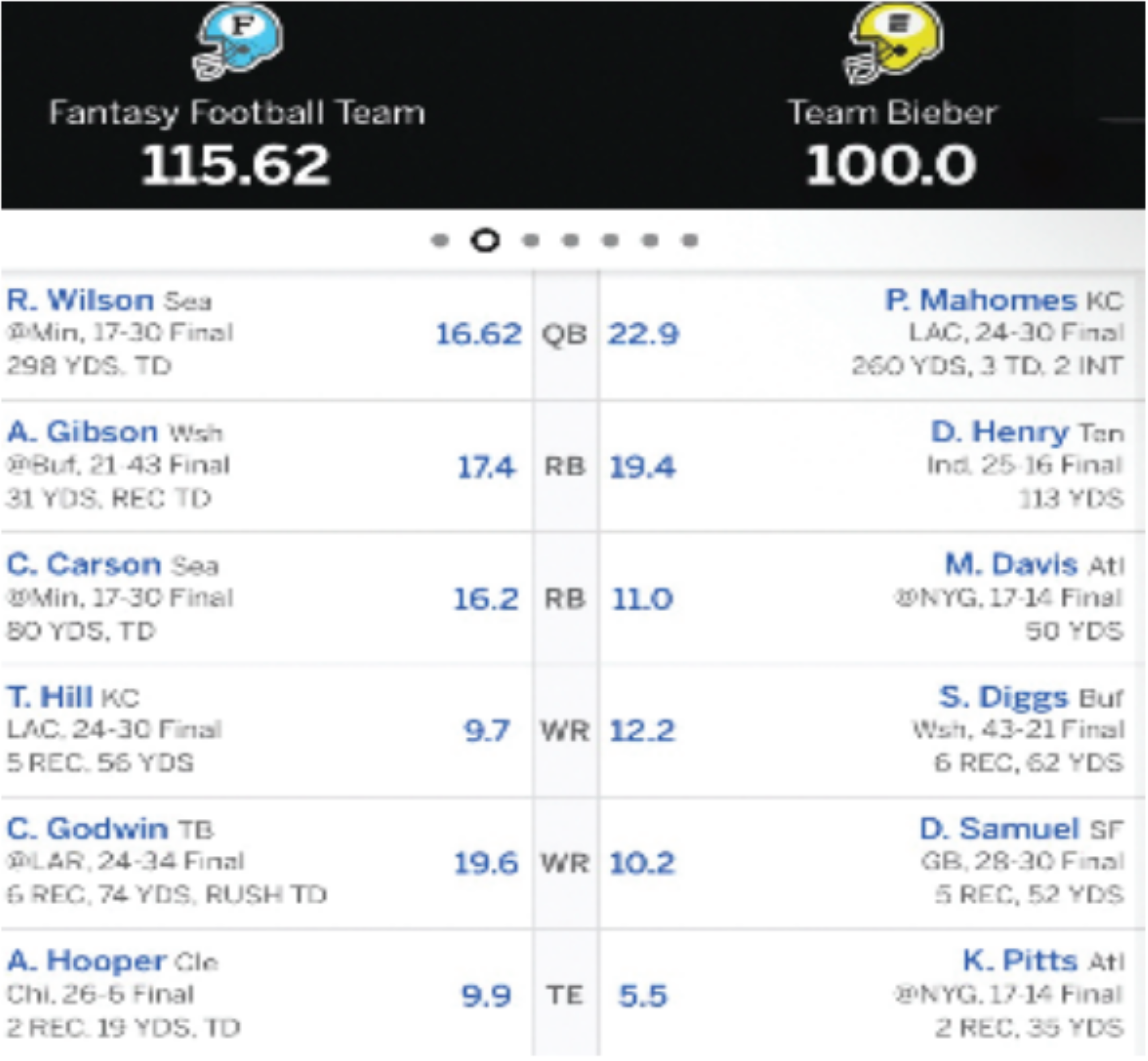Students Reflect on Their Experiences Playing Fantasy Football
Amidst a pandemic that has strained friendships—it’s become harder for people to meet together in-person, or play sports together—many continue to search for outlets to stay connected in meaningful and fun ways. Fantasy football offers just that.
Fantasy football is an opportunity to manage your very own NFL team - virtually. The wildly popular game has a global audience reaching tens of millions of people. Many different corporations, ranging from Yahoo to ESPN, jostle for the opportunity to become the leading fantasy football app.
Participants in a fantasy football league take turns drafting virtual versions of real-life NFL players. Users can pick from all the players in the league using a lottery system. Based on the performances of those NFL players, participants’ teams rack up varying amounts of points. There are two basic systems: points per reception (PPR) and non-PPR. With PPR, participants receive points for every player reception, and by extension, players earn additional points when they choose quarterbacks who throw those passes. However, non-PPR reward players who have more touchdowns and yards. Participants can also make trades, draft free agents, and replace injured players. At the end of the NFL regular season, the participant with the most points wins their league.
Students at Riverdale are mostly drawn to this game because of the camaraderie it fosters among friends. Sophomore David Lederer, who was introduced to the game by his father, enjoys the competitive spirit of the league, as well as the fun of playing with his friends. Lederer has played in a variety of leagues in the past, and this year, he plays with two of his peers. Sophomore Theo Aborn, whom Lederer invited to play, similarly appreciates “how fun it is to be in a league with friends. Being able to trash talk [my opponents] is really enjoyable.” Aborn further explained his view that fantasy football is a nice diversion from the stress of schoolwork. In particular, he is meticulous and systematic with his team. “I spend a lot of time figuring out trades [and] figuring out which free agents I want to pick up,” he explained. Fantasy footballers’ passion for their game heightens the fun of it.
Engaging in fantasy football also helps people build a stronger connection with the sport. Football fans who do not participate in a fantasy football league usually only watch the games of their favorite teams or players. However, fantasy football requires participants to watch most, if not all, NFL games to ensure that the players on their fantasy team are performing well in real life and to scout for new players to draft. This research ensures that fantasy football players remain competitive in their leagues. As a result, participating in fantasy football builds deeper knowledge of the nuances of the sport and a greater appreciation for the entire NFL.
In a sports world mired in Covid-19 restrictions, fantasy football offers both an escape from the real world and a way to connect with friends. Aborn says, “you have total control over everything in fantasy football… your success or failure falls squarely on you.” Furthermore, especially amidst a pandemic that often prevents friends from meeting in person, fantasy footballers view the game as a way to interact with each other virtually.
At the same time, sophomore Eitan Katz, who plays with Lederer and Aborn, notes that “Covid restrictions hurt [his] team.” The Covid-19 safety protocols prevent some of his best players from playing or result in them having to quarantine due to Covid-19 exposure. The pandemic continues to permeate all aspects of our society - even online sports games. But through virtual entertainment like fantasy football, millions of people around the world can preserve at least some of their love for the sport of American football.



